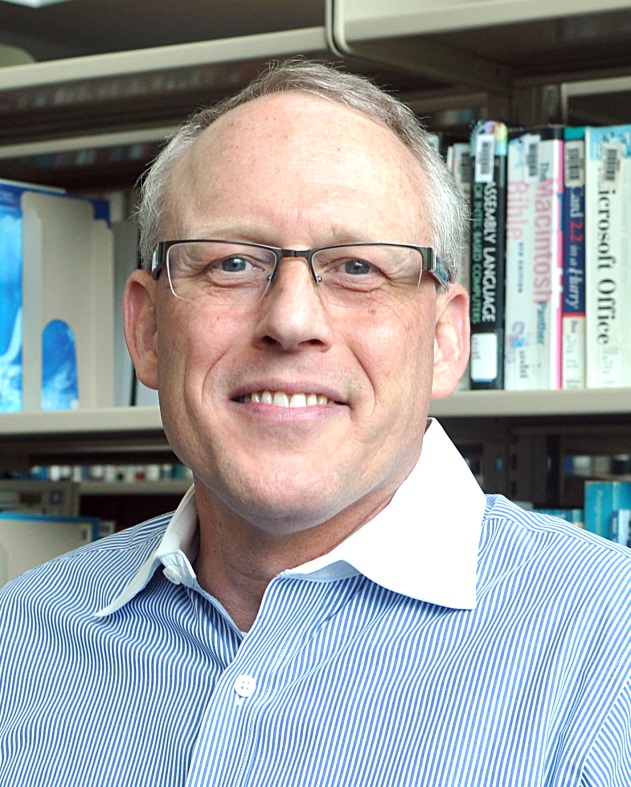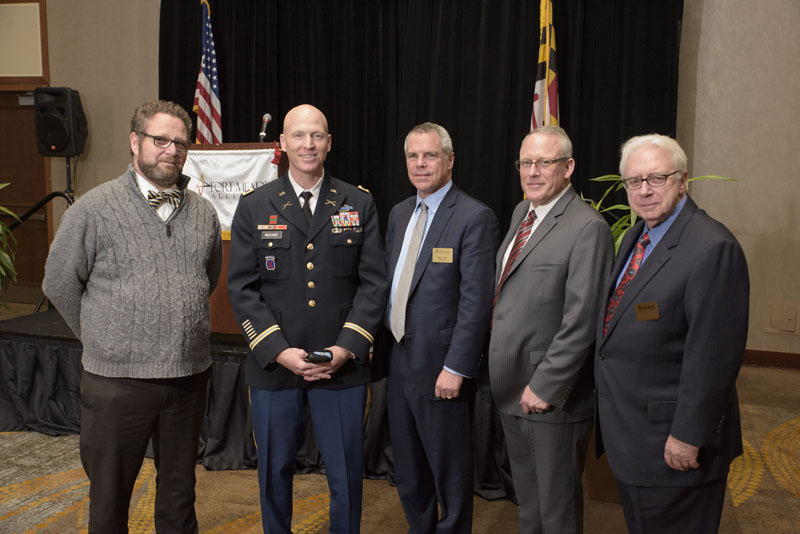Soren Ashmall is well-known to students in Capitol Technology University’s business programs for his dynamic teaching methods, employing multimedia and even music to reinforce the concepts he is teaching. In addition to being a professor, Ashmall is also deeply involved in the development of new programs at the university, in his role as Associate Director of Master’s Programs and Assessment. We spoke with Professor Ashmall about his academic vocation, his goals and priorities, and some of the activities – both professional and personal – that engage him.

How did you become involved in higher education?
It’s been part of my life from the beginning – literally. I grew up in Ann Arbor, where my mother was a professor at the University of Michigan. My grandfather was the deputy director of the university hospital, where I was born. The university campus was my playground. The law library was where I studied. If my mom was teaching evening classes, I’d grab a meal at the student union. The educational arena, for me, has always felt like home.
Although much of my adult life has been outside of academia, including a 22-year career as a Marine Corps officer and later a corporate executive, I’ve kept up my connection with education – teaching in enrichment programs or as adjunct faculty. It’s something I keep coming back to.
A few years ago, after a successful stint at a major government contractor, I found myself considering the next phase of my career – where I wanted to be, what I wanted to accomplish. After much self-reflection, I recognized that I’ve had an abiding connection to higher education, one that I’ve wanted to explore more fully.
What are some of your goals and priorities with regard to academic programs at Capitol?
My goal is to help the university grow and flourish. Not just survive, but survive and thrive. The way we do that is by creating new programs and degrees that meet emerging needs in our technology-driven economy, and in so doing bring in new students that might not have looked at us before. In this way we remain true to our STEM foundation, which goes back to Capitol’s origins in 1927, while adding new layers.
 The
International Society for Technology in Education (ISTE) recently
recognized you for your leadership in its Games and Simulation Network.
Could you tell us more about interest in this area?
The
International Society for Technology in Education (ISTE) recently
recognized you for your leadership in its Games and Simulation Network.
Could you tell us more about interest in this area?As a business professor at Capitol, I’ve brought simulations into the classes I teach. These are designed to give students practical experience with the material we cover in class, so that they’re not just learning passively but actually applying what they’ve learned. Some put you in the role of a CEO. In others, you might be part of a team that runs a small coffee house. In my role in the ISTE, I’ve been able to share our experiences at Capitol, while also hearing about what other schools have been doing.
There is a great deal of discussion today about the importance of teaching technology, but a crucial part of the discussion is about how technology is taught. The old-school method is to stick a bunch of students in a room and bore them with PowerPoints. But seeing a technology explained on a PowerPoint isn’t the same as learning to use it. Simulations not only offer students a more engaging learning environment, but they provide a way to make the critical leap from concept to practice.
You are Capitol Technology University’s representative at the Fort Meade Alliance (FMA). What is the purpose of the Alliance and how is Capitol involved?
Fort Meade is the headquarters of the NSA and the US Cyber Command, and home to 116 federal agencies and military commands. It’s Maryland’s largest employer. The Fort Meade Alliance is an independent community organization that supports the organizations hosted at Ft. Meade, as well as the personnel stationed there, and helps bring about partnerships among stakeholders, including small and large businesses as well as educational institutions.
For Capitol, FMA membership is one of the ways in which we integrate with our community and nurture connections with businesses and organizations in the area. As a local university with a technology emphasis and a 90-year track record of academic support for our nation’s service men and women, we’re in a position to help provide educational opportunities for military personnel at Ft. Meade.
Outside of professional and academic life, what are some of your activities and interests?
Singing has been one of my activities since a very young age, both as part of choirs, and as a soloist. Currently, I’m a member of two different choirs in the greater DC area, and I also enjoy going to watch performing arts. I’m a strong advocate of the view that the arts and sciences go together and reinforce each other.
I also enjoy traveling and exploring new places – and also exploring places I’ve been to before and seeing what’s new. I go back to Ann Arbor periodically and there’s always a new business open, or something new on the campus. Exploration isn’t always about where you go – it’s about the spirit in which you go there.
No comments:
Post a Comment